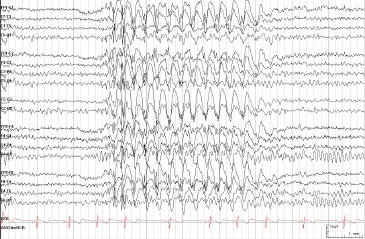Wyoming Epilepsy Center
Established in 2006, the Wyoming Epilepsy Center has served as a regional referral destination for people affected by seizures across a 4 state area. Our fellowship trained epileptologists lead an expert team of epilepsy specialists to deliver cutting edge service in the clinic and the hospital.
Patients from across the region are seen by our specialists in clinics across Wyoming. Follow up care may be either in hometown outreach clinics or arranged by tele-health. Outpatient evaluations may include electroencephalogram (EEG) done in one of our offices. More extensive evaluation might include prolonged Ambulatory EEG done in the home or admission to our Epilepsy Monitoring Unit (EMU) at Wyoming Medical Center in Casper. We have a full suite of services needed to diagnose and treat almost all patients affected by seizures. Our program is nationally recongized and is fully accredited as a Level 3 Epilepsy Center by the National Association of Epilepsy Centers (NAEC).
Level 3 Epilepsy Center. A third-level center should provide the basic range of medical, neuropsychological, and psychosocial services needed to treat patients with refractory epilepsy. Third-level medical centers provide basic neurodiagnostic evaluation, as well as basic medical, neuropsychological, and psychosocial services. These centers do not perform resective epilepsy surgery, although some may implant vagus nerve stimulators. Third level medical-surgical centers provide basic diagnostic and treatment services. In addition, these centers offer noninvasive evaluation for epilepsy surgery, straight-forward resective epilepsy surgery, and implantation of the vagus nerve stimulator. These centers do not perform intracranial evaluations or other more complex resective epilepsy surgery.
The Wyoming Epilepsy Center is closely affiliated with the UW Regional Epilepsy Center in Seattle where patients requiring the services of a level 4 center are referred. Our specialists work closely with the Seattle team allowing us to avoid duplication of testing and ensure a seamless transition to a higher level of care when more complex diagnosis or treatment options are needed..
Level 4 Epilepsy Center. A fourth level center should provide the more complex forms of intensive neurodiagnostics monitoring, as well as more extensive medical, neuropsychological, and psychosocial treatment. Fourth-level centers also offer a complete evaluation for epilepsy, surgery, including intracranial electrodes, and provide a broad range of surgical procedures for epilepsy.
Referral Guidelines for seizure disorders have been established by the NAEC. Delayed or denied referral may be detrimental to the patient’s health, safety and quality of life.
If your seizures have not been brought under control after three months of care by a primary care provider (family physician, pediatrician), further neurologic intervention by a neurologist, or an epilepsy center if locally available, is appropriate.
If you are seeing a general neurologist, and your seizures have not been brought under control after 12 months, you should insist upon a referral to a specialized epilepsy center with an epileptologist.
The American Epilepsy Society and The Epilepsy Foundation of America are tremendous resources for reliable information regarding epilepsy and related problems.


